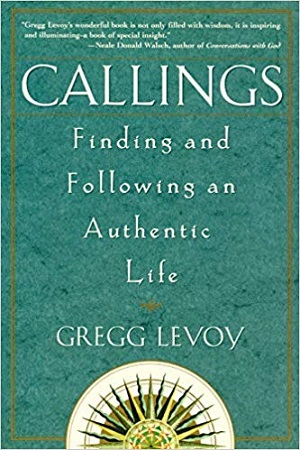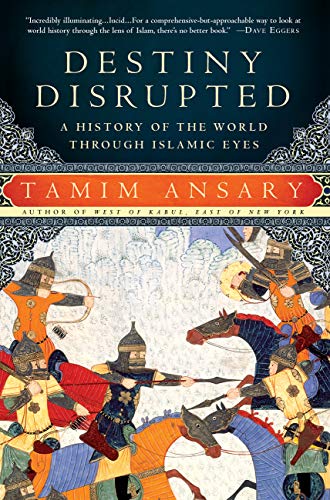 Gregg Levoy, Callings: Finding and Following an Authentic Life, Three Rivers Press Random House, 1997.
Gregg Levoy, Callings: Finding and Following an Authentic Life, Three Rivers Press Random House, 1997.
-in many traditions, calling (sounds) precede prayer, rites of initiation, major life events. summon adherents away from routines to new level of awareness, into sacred frame of mind, communion with what is bigger than themselves. what is calling? 'life's longing for itself' (Gibran). 'living means being addressed' (Buber).
-we can't see the force, but we can see what it does. a return call, a response, creates a dialogue. our own unfolding requires that we be in constant dialogue with whatever is calling us. call-response central metaphor for spiritual life. listening = following in Latin.
'No man is an island, entire of itself...any man's death diminishes me, because I am involved in mankind; and therefore never send to know for whom the bell tolls; it tolls for thee.' (Donne 1624) brings on the fear that frightens away sleep. no guarantee change for better.
-re-ligion = re-connect, re-member our selves, the deep life within us where religious impulse resides. William James: religion as 'the attempt to be in harmony with an unseen order of things'. 'hope is not the conviction that something will turn out well, but the certainty that something makes sense, regardless of how it turns out.' -we don't know enough to despair. Despair is hidden arrogance. i have seen the future and it doesn't work. hope is rooted in trust in the unknown. work, wait, and hope. that is enough. (Sam Keen)

 He had it all, and survived to relish it. Beauty, stardom, even an okay love life. The epitome of Hollywood in its heyday. And it was all a (well-meant) ruse. Tab was happy to stay ‘in the closet’ right to the end. He accepted his sexual orientation but was ‘not comfortable discussing it.’ His work with John Waters and Divine were ‘the high point of my professional life, even though it led to another label being hung on me that I have no use for: Gay Icon.’
He had it all, and survived to relish it. Beauty, stardom, even an okay love life. The epitome of Hollywood in its heyday. And it was all a (well-meant) ruse. Tab was happy to stay ‘in the closet’ right to the end. He accepted his sexual orientation but was ‘not comfortable discussing it.’ His work with John Waters and Divine were ‘the high point of my professional life, even though it led to another label being hung on me that I have no use for: Gay Icon.’ Reviving the ‘House of Peace’ as the peace movement's guiding principle
Reviving the ‘House of Peace’ as the peace movement's guiding principle


 Mohamed Morsi will be more remembered in Canada and the US (if at all) as a textbook case of how the internet can catapult someone to fame and just as easily destroy him.
Mohamed Morsi will be more remembered in Canada and the US (if at all) as a textbook case of how the internet can catapult someone to fame and just as easily destroy him. 



